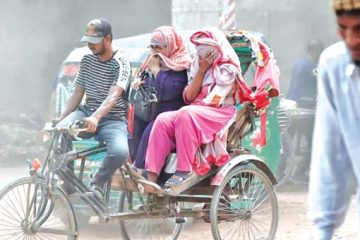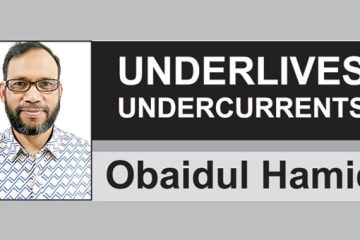Mahmudur Rahman
 Technical and vocational education and training has come a long way. Once the mere acquiring of basic skills was considered enough to address the demand for technical expertise. Times and demands have changed. But in an age when emphasis is placed on technical competencies, especially in blue-collar jobs, Bangladesh faces a challenge.
Technical and vocational education and training has come a long way. Once the mere acquiring of basic skills was considered enough to address the demand for technical expertise. Times and demands have changed. But in an age when emphasis is placed on technical competencies, especially in blue-collar jobs, Bangladesh faces a challenge.
Parents, guardians and students are so wrapped up in the two general education streams of SSC and Madrasah that they do not view technical and vocational education as being worthy. Yet industrialists bemoan the dearth of adequately trained and competent employees. There is too much dependence on sending typically unskilled labourers abroad. More and more of these expatriates are finding out that they no longer have the competencies that are in demand in today’s world.
When it comes to equipping our workforce with the required competencies, the challenge is huge. The key is in ensuring the balance of three basic factors; developed in tandem, training and education can enhance work flexibility, quality and relevance. If anyone of these slips, the result will be a shortfall, either in the competencies acquired or in meeting demands of the employment market.
The lack of streamlined existing trade and technical qualifications has meant that there are no universally acknowledged standards against which workers and employees can be measured, nor a mechanism that takes into account their previous learning. Moreover, with 70 countries of the world already having a qualification framework — a number of which are destinations for the Bangladesh employment market — the time may come sooner than later for a synergy between these overseas qualifications and those of Bangladesh.
In recognition of this, the Bangladesh government’s Technical and Vocational Education and Training (TVET) reform project, managed by ILO and with funding from the European Union, produced a National Technical and Vocational Qualifications Framework (NTVQF). It focuses on TVET institutions flexibly meeting the job market’s technical and vocational education and training needs and on the needs of the poorer and disadvantaged groups.
The newness of this system is breaking the myth that technical training and education is limited to classrooms or based on the requirements of big industry. Qualifications and curricula are reviewed and new ones proposed so that the training regime becomes demand-driven, modular, competency-based and suitable for both big and small businesses.
Industries benefit from better-trained graduates. But the approach also ensures that regular students and underprivileged groups (such as drop-outs, low-literate and/or poor men and women and physically challenged persons) also have access to recognised training. This innovative training aligns with an expansion of qualifications that better reflect the growing and changing occupational and competency profiles in both domestic and international employment markets.
The NTVQF, when approved, will replace a National Skills Standards (NSS) system that was established decades ago but never really caught on. The new system will provide five vocational qualifications and one diploma-level qualification. In addition, the NTVQF will have two pre-vocational levels that provide pathways for less educated and underprivileged groups to train for higher-level certificates.
Should someone not be able to finish all competencies required for an entire qualification, there will at least be a ‘statement of attainment’ for specific units of competency achieved. These latter documents are useful to employers as evidence of competence and can be “banked” for application later if a person wishes to complete the training towards a full qualification.
At the secondary school level, a dual certification system is to be introduced. Students who complete SSC (VOC), HSC (VOC) and HSC (BM) can try for an NTVQF qualification, in addition to their school qualification.
A new qualifications framework for TVET is a huge transition for Bangladesh. The current idea is to ease the process by first introducing the NTVQF in the three “thrust” industry sectors which are the focus of the TVET Reform project, and in four industry sectors which are supported by the Skills Development Project.
All government agencies engaged in skills training will eventually align their curricula with the NTVQF, and NGOs and private-sector training organisations will be encouraged to do the same. The Bangladesh Technical Education Board is expected to undergo restructuring and expansion and will be responsible for implementation and periodic review of the NTVQF implementation and other aspects of a quality assured TVET system.
Mahmudur Rahman is a corporate administrator and a sports commentator.







